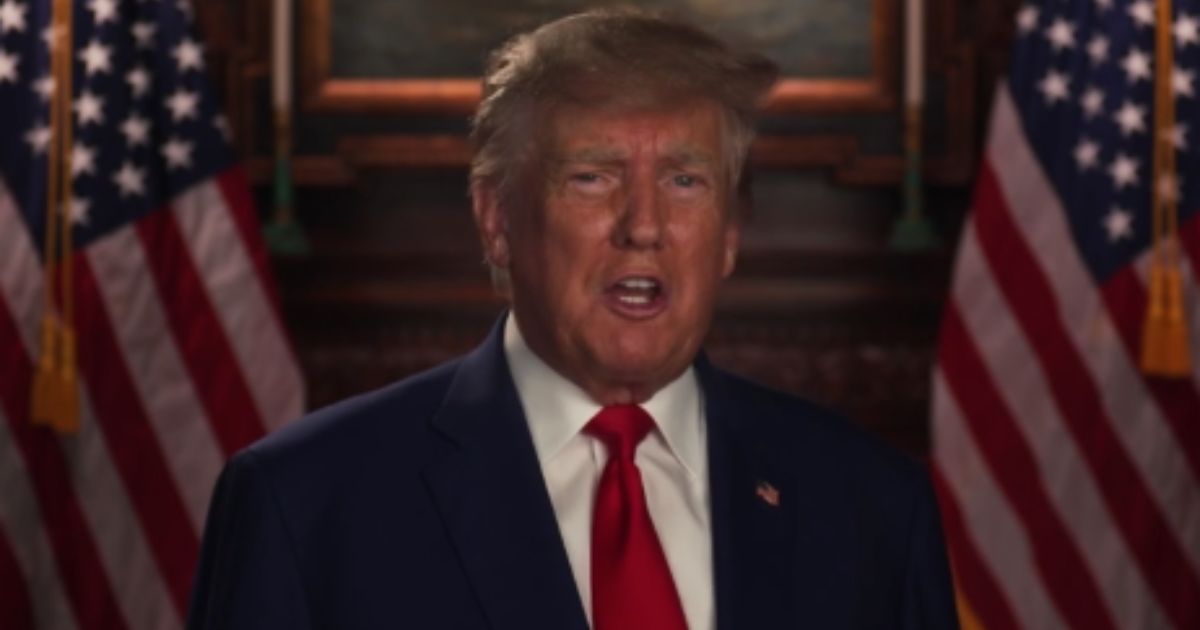White House signals potential veto on Senate's tariff cancellation move
President Trump faces opposition from Democrats and some Republicans over his controversial emergency declaration targeting the northern border with Canada.
According to Fox News, the White House has warned it will recommend Trump veto a Democrat-led Senate resolution aimed at reversing his recently imposed tariffs on Canada if the measure passes.
The resolution, spearheaded by Senator Tim Kaine (D-Va.), seeks to undo the national emergency declaration Trump made on February 1 regarding the northern border.
This move would effectively cancel the tariffs his administration has placed on Canadian goods, setting up a potential showdown between Congress and the White House.
White House Defense of Border Emergency Measures
A White House official strongly criticized Kaine's resolution, characterizing it as political maneuvering that undermines critical national security priorities.
The administration emphasized that border encounters increased by over 420% under former President Biden's leadership, highlighting what they view as a pressing security concern.
Trump's emergency declaration has reportedly led to a 65% reduction in northern border crossings since its implementation. The White House also pointed to significant fentanyl seizures in 2024, claiming enough of the drug was intercepted to potentially kill nearly 10 million people.
The administration maintains these statistics justify continuing the emergency measures and associated tariffs against Canada, despite pushback from lawmakers on both sides of the aisle.
Trump Takes Direct Aim at Resolution Sponsor
President Trump took to Truth Social to voice his opposition to Kaine's resolution, stating:
Senator Tim Kaine, who ran against me with Crooked Hillary in 2016, is trying to halt our critical Tariffs on deadly Fentanyl coming in from Canada. We are making progress to end this terrible Fentanyl Crisis, but Republicans in the Senate MUST vote to keep the National Emergency in place, so we can finish the job, and end the scourge.
Trump's social media response highlighted the political stakes involved, as he urged Republican senators to stand firm against the resolution. The president argued that Democratic weakness had allowed the fentanyl crisis to worsen, while claiming his administration's approach was achieving results.
Congressional Battle Lines Take Shape
Senate Republican leadership has aligned with Trump's position, with Majority Whip John Barrasso preparing to defend the emergency declaration in an upcoming floor speech.
The Wyoming senator plans to emphasize how criminal cartels have allegedly exploited the northern border while public attention has focused primarily on southern border issues.
The resolution requires only a simple majority of 51 votes to pass the Senate, making its success a distinct possibility. Several Republican senators, including Rand Paul of Kentucky, have expressed reservations about the tariffs, potentially providing crucial votes for the measure's passage.
Democratic critics, led by Kaine, argue that Trump's emergency declaration represents an abuse of presidential authority. They contend the administration's justification for targeting Canada lacks credibility and could damage relations with a crucial ally.
Canadian Response and International Impact
The White House acknowledged that Canada has taken steps to address U.S. concerns, including deploying additional technology and law enforcement personnel to the border. Canadian officials have also created their first National Fentanyl Czar position in response to the crisis.
These developments suggest the emergency declaration and tariffs have influenced Canadian policy, though critics argue the measures unnecessarily strain relations with one of America's closest trading partners.
Resolution Outcome Depends on Senate Vote
The Senate faces a critical decision on Kaine's resolution to terminate Trump's northern border emergency declaration and associated Canadian tariffs. The White House stands ready to recommend a presidential veto should the measure pass both chambers of Congress.
A final vote is expected Tuesday, though timing may shift due to Senator Cory Booker's ongoing record-breaking floor speech. The outcome will significantly impact U.S.-Canada relations and set precedents for future use of emergency powers in trade disputes.





